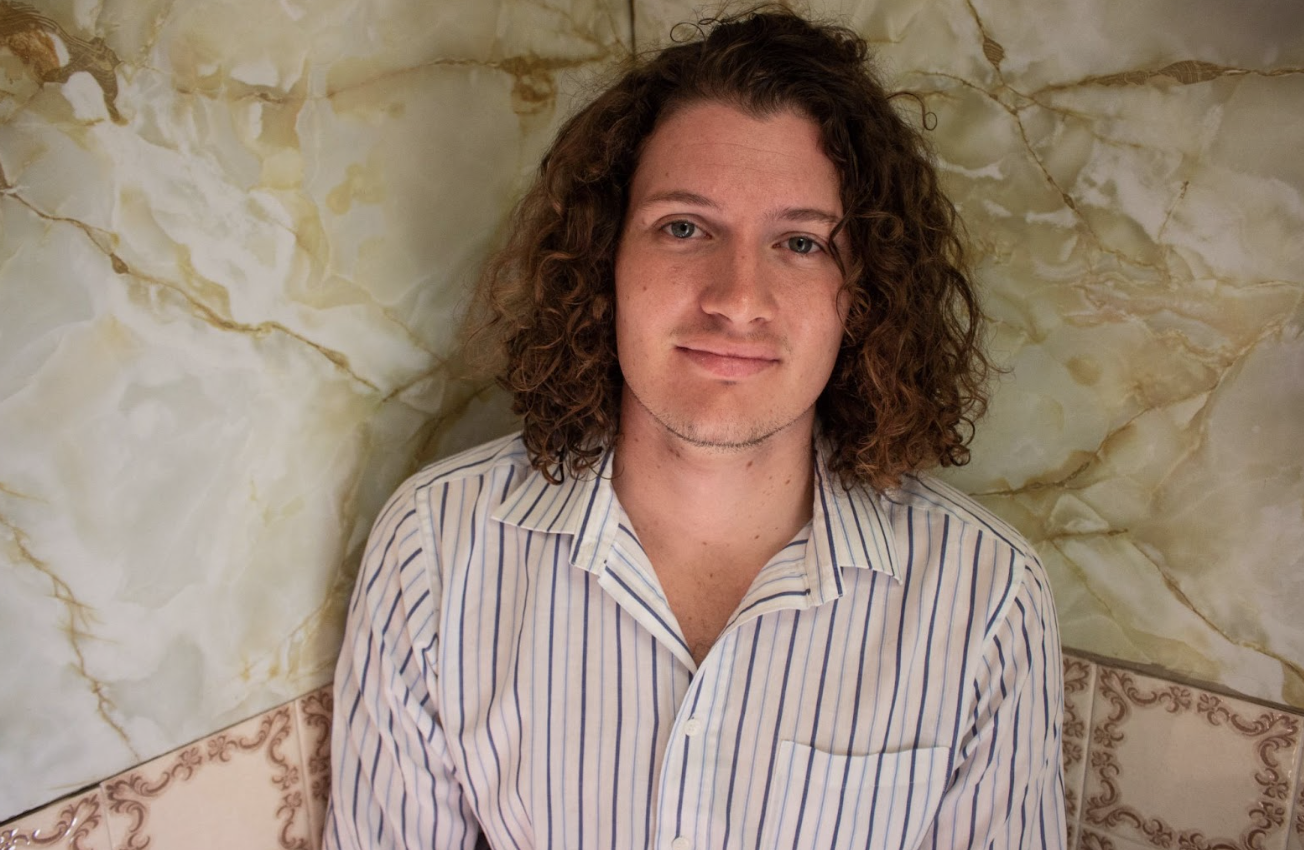We are thrilled to introduce you to published writer, poet and editor Nick van Buuren whose short story ‘Street Chasers of the Great South East’ is published in the 2022 Slinkies anthology. In this interview with Kathleen Kelly (publishing intern), Nick talks about the inspiration behind the story, his love of poetry, his writing style and the short story he is working on at the moment that involves the death penalty in America, reality TV and small business office room drama. To find out more about this year’s Slinkies, join us on 29 September at 7.30 pm AEST for the online launch of this excellent publication and the lowdown about Slinkies 2022. Register here.
What was your inspiration for this story?
The inspiration for ‘Street Chasers of the Great South East’ came while spending a week with my family on the Sunshine Coast in Queensland. Every day we walked to and from the beach. We went past a road crew who were resurfacing one of the local roads. At the time, I was reading Robert MacFarlane’s Mountains of the Mind. McFarlane writes at length about the British Colonial obsession with exploration, mapping and naming during the Victorian era, particularly in parts of British India such as the Himalayas that had never been ‘explored’ by Europeans. So I guess the world of ‘Street Chasers’ grew out of the happy meeting of these two events. Watching something as seemingly permanent and invisible as a road being scrapped off the earth and re-laid was a telling reminder that citizens in a settler society are the inheritors and perpetuators of these colonial impulses and psyches on increasing stratified sites. To occupy and name a place is to simultaneously profess your ignorance of and desire to exercise a totalising will over that place. The act taken to extremes excludes and colonises other people’s and community’s memory and knowledge of that place. What alternatives are there? ‘Street Chasers’ was an attempt to start exploring this question.
Is there any significance to the street names you chose to include in the story?
Yes and no? What is most important to me is that people recognise the way in which names (in this story but also more generally) are an intentional form of language much like a poem, story or joke. You can recognise that a part of speech is a name or that a bunch of words strung together is a joke without necessarily having to ‘get it’ or find the joke funny. On one hand, I hope for a reader to arrive at this place because not ‘getting it’ but recognising that someone else might is a curious and open state of mind to be in. It not only sends a reader looking for meaning but also leads them to ask what kind of lived experience might find meaning in something so boring and strange as a name. On the other hand, if proposing to name a suburban strip of bitumen Ramsay Street makes a reader think of a never-to-be-mentioned soap opera and that sparks joy then hooray for that.
Do you identify with any of the characters in the story?
Not particularly, more than with any one character, I would say that I identify (or maybe recognise is the better word) with the world of the story. Ultimately, I hope ‘Street Chasers’ leaves an impression of being about individuals in systems of power, sometimes visible sometimes not. I think we can all identify with how those systems structure our actions and characters. Sometimes to the extent that certain things can feel predetermined or inevitable. That’s why, more than having a fully-fledged psychological profile of each character, the story narrows in on particular traits or world views that I feel deeply familiar in settler Australia. Olsen is a relic of a ‘golde’ age of public life passe. Innes is the self-made frontiersman whose energies seem somewhat misplaced in the time and place he finds himself in.
What books do you like to read?
I have to confess I am first and foremost a poet. I feel at home in books of sonnets and an endless backlist of lyrics. Otherwise, fiction is something I am still learning, and so what I mostly like to read at the moment is a conveyer belt of short story collections from authors I feel I have much to learn from: George Saunders, Joy Williams, Donald Barthelme, A.M Holmes. They get one story each before the pile rotates.
What was your writing process like? Are you a plotter or a pantser?
I am the unhappy middle ground of the two! I would say that generally I start with an image or idea and then have to spend a lot of time working out how the hell that becomes a story. I always think of it as my poet’s brain latching onto something in the dark and then my plodding narrative brain catching up by slowly charting a course towards that idea or image. So lots of plotting, but when it comes to then following the plotted course, I start pantsering again. It’s an unending battle!
Are you writing anything at the moment?
Yes, I am currently in the plotter phase for another longer short story like ‘Street Chasers’; worryingly it concerns the death penalty in America, reality TV and small business office room drama. After that, there’s a couple of stories that are due to come out of the bottom drawer after a much needed break: one about a leech farmer who wants to make it in a talent show, another about a stepmom who has caught a shark and released it into the family backyard pool for her stepson’s 13th birthday.
Where can we find you on the socials?
I am a hermit when it comes to socials, but readers can find links to more of my work and a little more about me at my big orange website: https://nickvanbuuren.com/

